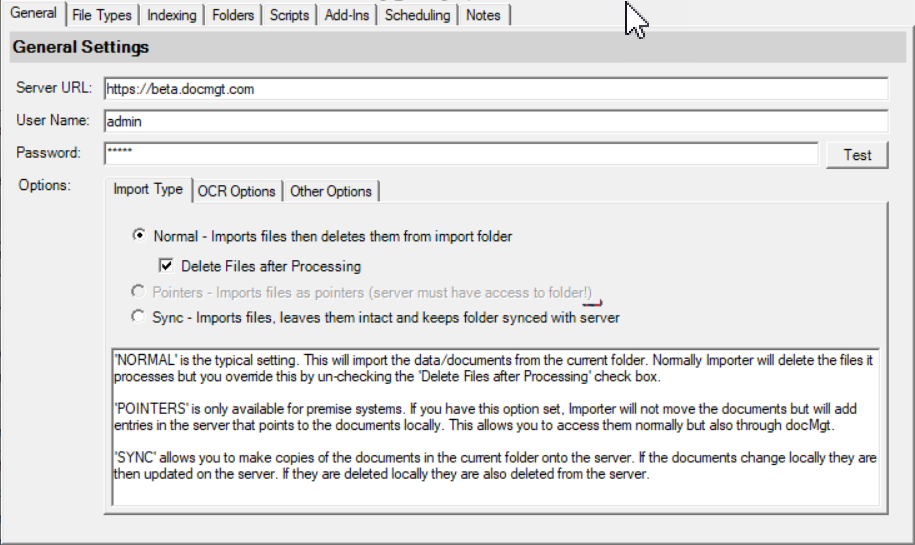Import Type
The Import Type is very important! Setting this wrong can have severe consequences so make sure you understand this section completely before proceeding!

Normal
Normal import is when you want to import data and documents to docMgt and have importer delete the local data when the import is complete. This is the typical scenario and is most commonly used.
Delete Files after Processing
This option allows you to process as normal but NOT delete the files as they are imported. This can be useful for one-time imports or for import testing. For scheduled, recurring imports you need to be careful with this option. Since the files are not deleted they will be imported again and again in each import cycle. This is usually not preferred unless you have a way of clearing out the files before the next import cycle.
Pointers
Pointers import is when you want to importer the data and document "pointers" to docMgt. This does NOT delete anything from the local drive and it requires docMgt to be local to the data folders because the server must be able to get to the paths of the documents in order to serve them back to users.
End users do not see a difference between Normal and Pointers imported systems but the main difference is that when using Pointers, the documents are not sent to the server. The document paths are saved in the server and the server must get to that path to be able to retrieve the documents for service back to the users.
The Pointers option is NOT available in the cloud version since the cloud server would not be able to get to the local documents.
Sync
Sync import is when you have a folder local to the importer that you also want to be available through docMgt. In this scenario the data and documents are sent to the server just as in the Normal import. Any changes to the local copies of the documents is synchronized to the server and any documents deleted from the local folder is deleted from the server as well. This is a good solution for converting someone out of a folder storage solution so they can access their files remotely.